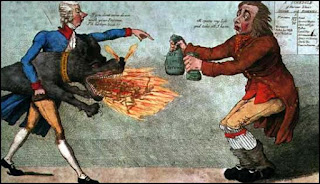Thursday, March 03, 2022
Stupidity Tax
Monday, September 07, 2020
Universal Basic Buffer
A Universal Basic Income doesn’t have to be funded through hand-to-mouth tax redistribution. It could be funded by Capital. Paid as a dividend to the owners of that Capital. The challenge is obviously time. Capital needs to be built. There are always competing priorities, and putting money to work rather than spending it on pressing needs can mess with the head. Building Capital isn’t a “rainy day fund”. Building Capital isn’t storing or hoarding. It is shifting from a consumption to a custodial mindset. Shifting from cutting down the trees to living off the fruit. Capital building starts as buffer building. Expenses are noisy, and do make loud demands. Sometimes cutting down the trees is the right thing to do. Eventually, with spending constraint, you can get the buffer to be big enough to handle unexpected needs. At that point, Capital can get a proper job with a long-term perspective. A baby step to a Capital funded UBI may be a Universal Basic Buffer. Aim for Capital that would only last for 6 months if constantly drawn on. Then 1 year. Then 5 years. Then, one day, a secure permanent financial base to everyone. A societal foundation for creativity.
Tuesday, July 28, 2020
Key Person Risk
Sunday, April 05, 2020
Reverse Hut Tax
Wednesday, November 07, 2018
Stupidity Tax
Money isn't a thing. It is smoke and mirrors. You need to look through the clouds to see what is going on behind the scenes. That is what really matters. Don't be fooled by what you see.
Sunday, October 28, 2018
Who Pays?
The UBI model I like still needs 'someone to pay'. It just contains the situation within much smaller boundaries. If a 150 person community was built, 75 people could be the 'Breadwinners'. Over the course of 15 years, they could (1) pay for their own UBI, (2) save for their own UBI, (3) pay for someone else's UBI, and (4) save for someone else's UBI.
So, for example, if 75 people paid $8 a day. (1) They would receive $2, (2) they would invest $2 to build an Engine for themselves, (3) they would pay as you go $2 to someone else, and (4) they would invest $2 a day to build an Engine for someone else. After 15 years, I believe they could have, with sound investing, built an Engine to sustain that $2 UBI for themselves and one other person.
The 'Gross Cost' to them is $8 a day. The 'Net Cost' is $6 (they receive the UBI too). $4 is not really a cost, given that it is invested. It grows. Managed sensibly, with good custodians, one day it could live for ever. A fully funded Community Wealth Fund could one day support a Universal Basic Income without any additional contributions.
In a world of hand-to-mouth, someone does need to pay. But we don't need to live hand-to-mouth. A Universal Basic Income doesn't have to be tax funded. It could be a dividend on our Community Wealth. One day. If we make good decisions today.























